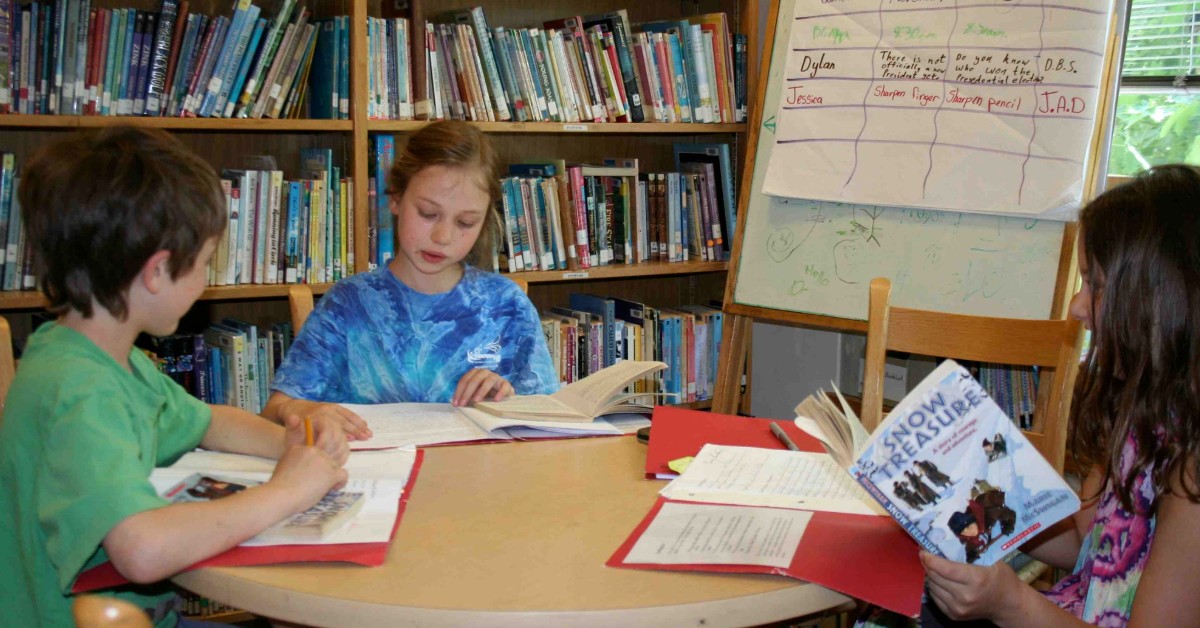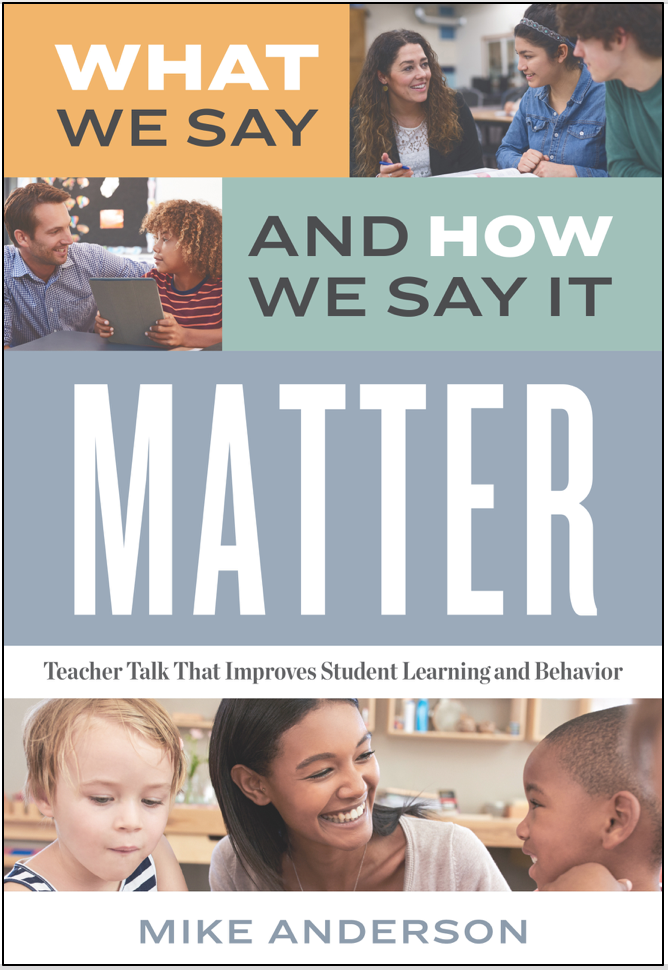Literacy Teachers: Rethink the Phrase, “Good Readers…”

If you teach reading and/or writing, there’s a good chance that when introducing a new concept or skill, you begin your lesson by saying some variation of, “Good readers….”
- “Good readers pay attention to context clues.”
- “Good writers add detail to important parts of their story.”
- “One thing that good readers do is to make connections between what they’re reading and events in their own lives.”
- “If you want to be a good writer, don’t fall in love with your first draft. You’ll need to revise to make a piece of writing better.”
This teacher language practice is a widely accepted form of encouragement when working with young readers and writers. It is used with the best of intentions. It’s meant to inspire—to plant the seed that all kids should want to be good readers and writers. It’s also meant to give purpose and meaning to the lesson that’s about to begin. However, there are a couple of reasons we might want to reconsider this language practice.
Aren’t Kids Already Motivated to Be Good Readers and Writers?
First off, aren’t kids already motivated to be good readers and writers? I know that some may not love reading and writing, and some have certainly received messages that they’re not good at it—which is no doubt demotivating. But if you really think about it, if any kid could wave a magic wand and be a good reader and writer, wouldn’t they do so? Why would any kid not want to be a good reader and writer? When we then try and encourage them to want to be good readers and writers, might we actually be sending a subtle message to children that we think they aren’t already motivated? After all, if we assumed that kids wanted to be better readers and writers, convincing wouldn’t be necessary. We may accidentally be betraying a low expectation with this language habit. This is worth consideration since teacher expectations have such a profound impact on student achievement. Instead, let’s consider language that assumes that children are already motivated. Instead of encouraging them to be good readers and writers, we can simply share strategies for them to try.
Assume Intrinsic Motivation
| Instead of… | Try… |
| “Good readers go back and reread when they get to a confusing part.” | “If you get to a confusing part in your reading, try going back and rereading.” |
| “If you want to be a good writer, make sure to be thoughtful about the words you choose.” | “Make sure you use words that will help your readers know just what you mean.” |
“Good Readers” Is Too General
Another reason this habit bears reconsideration is that it rolls off the tongue too easily—and therefor may lack real meaning. Much like the hollow praise (“Good job!”) doesn’t require the speaker to be specific about what was done well—and doesn’t give the receiver any kind of valuable information, “Good readers…” might feel a bit shallow. It’s too general. It could begin any lesson or strategy explanation and may encourage compliance (“Do this because you’re supposed to…”) instead of engagement (“This strategy is helpful for a specific reason…”). Instead, we can offer more specific reasons for why a reading or writing strategy might be used.
Offer A Specific Purpose
| Instead of… | Try… |
| “Good writers add details to their stories.” | “Adding details to your story will help your writing come alive for readers.” |
| “Good readers pay attention to punctuation.” | “Paying attention to punctuation will help you better understand what you’re reading.” |
Do We Want Students Engaged in Self-Judgment During a Lesson?
Finally, let’s think about how it might feel to be a kid receiving this kind of message. You have just settled in for a writing lesson, and your teacher introduces a new strategy by saying, “Something good writers do when making an argument is to share the other side’s points of view.” There’s a chance that instead of thinking about the second part of this sentence (sharing other points of view) you might get stuck on the first. Am I a good writer? You might wonder. I haven’t shared other points of view—and I’m not really sure how to do that—so I must not be a good writer. Now that you’re anxious, are you more or less ready to take a risk and write?
Here’s another way to put yourself in students’ shoes when hearing this kind of message. Imagine that your principal is sharing an idea at a staff meeting—one she means for all teachers to try. She begins by saying, “Good teachers are clear about the most important goal they have for students whenever they begin teaching a new unit.” How would this feel? Just last week you began a new writing unit, and there are five goals listed in the curriculum guide. You’re not sure which is most important—they all seemed to be. Does this mean you’re not a good teacher? Might you even be a bit worried that this comment was directed at you? Are you now more or less open to learning?
Instead, let’s use less judgmental—more neutral—language when introducing strategies. That way, students can focus on the learning at hand instead of worrying about whether or not they’re good.
Reduce Judgmental and Comparative Language
| Instead of… | Try… |
| “Good readers think about how characters change throughout a story.” | “Readers pay attention to how characters change throughout a story.” |
| “Good writers don’t over-rely on formulas for writing, so break away from the five-paragraph essay.” | “As a writer, try breaking away from the five-paragraph essay.” |
 Okay, okay, you might be thinking…are we getting a bit carried away? Are all kids wracked with this kind of anxiety? Certainly not. Chances are, this kind of language washes right over many students—especially the ones who already consider themselves good readers and writers. Yet the ones it does trouble are very likely the ones we intended to support—students who struggle with confidence in literacy. If this language habit is troublesome for even one of our students, and there are replacements that will be better for all students, it’s worth considering a change.
Okay, okay, you might be thinking…are we getting a bit carried away? Are all kids wracked with this kind of anxiety? Certainly not. Chances are, this kind of language washes right over many students—especially the ones who already consider themselves good readers and writers. Yet the ones it does trouble are very likely the ones we intended to support—students who struggle with confidence in literacy. If this language habit is troublesome for even one of our students, and there are replacements that will be better for all students, it’s worth considering a change.
Note: This is a language habit I briefly address on pages 25-26 in my newest book, What We Say and How We Say It Matter: Teacher Talk That Improves Student Learning and Behavior. It’s part of a broader discussion about creating a culture of collaboration by reducing judgmental and comparative language.
Author
-
Mike Anderson has been an educator for many years. A public school teacher for 15 years, he has also taught preschool, coached swim teams, and taught university graduate level classes. He now works as a consultant providing professional learning for teachers throughout the US and beyond. In 2004, Mike was awarded a national Milken Educator Award, and in 2005 he was a finalist for NH Teacher of the Year. In 2020, he was awarded the Outstanding Educational Leader Award by NHASCD for his work as a consultant. A best-selling author, Mike has written ten books about great teaching and learning. His latest book is Rekindle Your Professional Fire: Powerful Habits for Becoming a More Well-Balanced Teacher. When not working, Mike can be found hanging with his family, tending his perennial gardens, and searching for new running routes around his home in Durham, NH.
You may also like

5 Reasons to Not Use Incentives This Year (and 5 Things to Do Instead)
- July 31, 2024
- by Mike Anderson
- in Blog

Feeling Burned Out? Maybe It’s Time for a Shake-Up!


